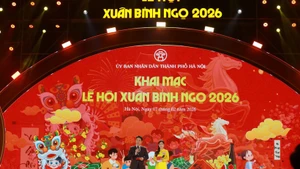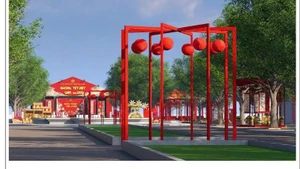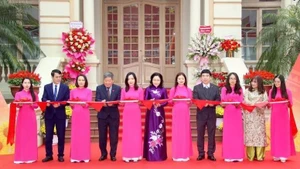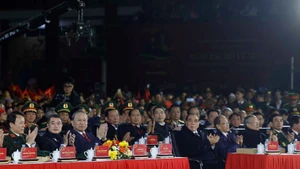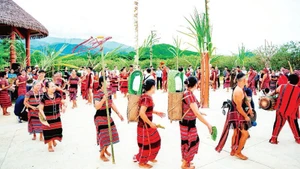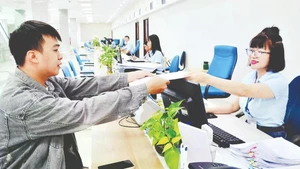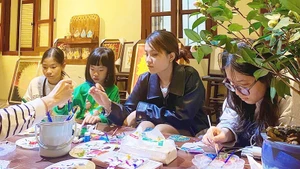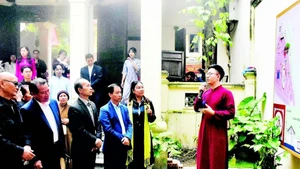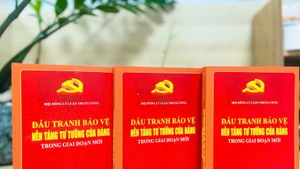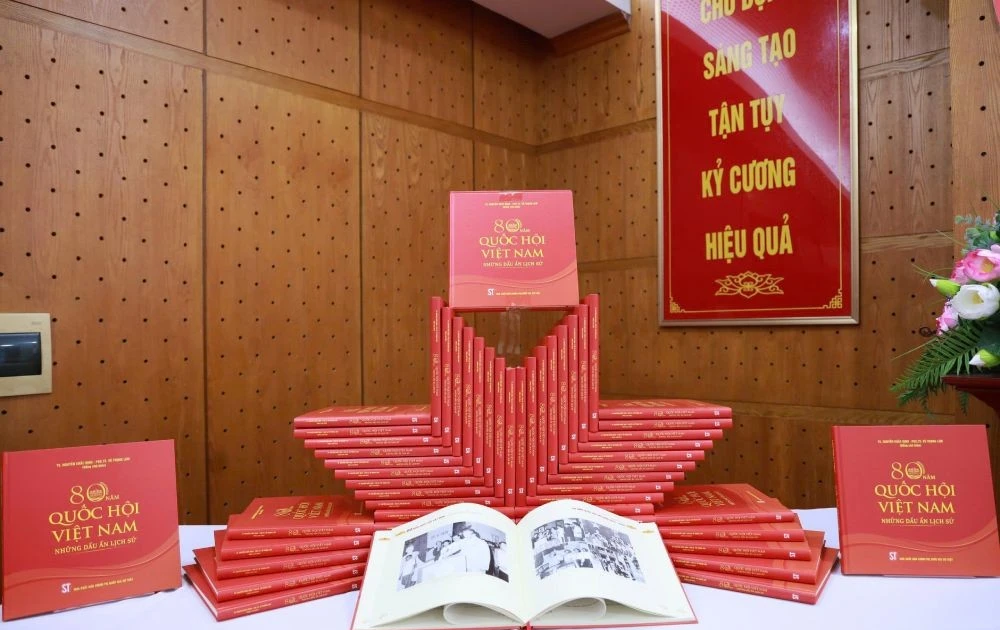Q: It is known that you have just completed the classical music project "Russian Melody-2024", with three performances in Hanoi, Hue and Da Nang, along with two master classes on vocal music. A series of classic works by famous Russian composers, Russian folk songs, and works created during the Great Patriotic War of the Soviet people, have provided Vietnamese audiences with many interesting experiences. Are you satisfied with the project?
A: After 10 years of studying in Russia, I have been attached to melodies imbued with Russian soul. With the first tour, when bringing the Russian classical music space to Vietnam, I focused on the things that I would do best.
To carry out the programme, I spent a part of my own money, and the rest was sponsored. I have also received the companionship and support from other units.In addition to Hanoi, the fact that the audiences in Da Nang and Hue also welcomed and filled the auditorium made me a bit surprised.Overall, I am really satisfied.
I always keep in mind that classical music is like a "polite business card" of each country, helping a lot with the international diplomacy policy. In many countries, classical music has a very solid position.Vietnam's cultural development policy also emphasises that it is necessary to preserve traditional music while absorbing the values of humanity. After the performances, I realised that the central region of Vietnam still lacks many conditions to develop classical music, both in terms of facilities and academic exchange.
Q: You have performed in many countries. What methods did you apply to develop classical music?
A: A very important factor is to create a taste for the listener. It means guidance for the audiences on how to listen and enjoy.I have performed on tour in Japan.Many performances were held in small localities, far from big cities.There, they had a great way to create a connection with classical music.Specifically, in many performances, the audiences heard familiar songs and melodiesand were introduced to other works.
I remember, I once performed a song whose melody was used in an advertisement for a beverage company in Japan. When I sang, the audience stood up and, applauded nonstop at that familiar and famous melody. And the show was a success. I think Japan has a way of creating a deep excitement for the audience. Meanwhile, on many classical music nights in Vietnam, the orchestra and singers play songs that are still somewhat unfamiliar to the audiences.
Q:In Vietnam, classical music has not attracted many listeners, compared to other music genres. So, in your opinion, what advantages does Vietnam have indeveloping this music genre?
A:Vietnamese traditional music contains many great values. Some of the first operasin Vietnam,such as the play “Co Sao” (Aunt Sao) by musician Do Nhuan, contain many Vietnamese traditional values. Musician Do Nhuan is one of the pioneers in bringing the unique features of Vietnamese Pentatonic music into opera.Vietnamese Pentatonic music is very beautiful. Even when I sing abroad, the audiences feel like it is a sound from heaven because it is very gentle. I think the colour of Vietnamese Pentatonic musicis a precious treasure.
For many people, classical music is one of the useful tools to promote national culture. Many Vietnamese musicians have also collaborated with foreign musicians, to create new worksthat feature cultural exchanges towards promoting Vietnamese folk music. However, to make classical music develop more strongly in Vietnam, more joint efforts are needed from agencies, organisations and individuals. More importantly, there must be a specific roadmap to develop and promote national identity through classical music.To do that, in my opinion, one of the important factors is that academic exchanges between Vietnamese and foreign artists must take place more frequently.
Q: As an artist with great passion and enthusiasm for Vietnamese music, what are your plans for the future?
A:I have a few plans.I am about to perform in Europe, and I plan to perform Vietnamese folk songs in classical form. For example, there are some songs, such as“Ly ngua o” (The Black Horse - Hue), “Beo dat may troi”(Drifting Blossoms, Floating Clouds), “Di cay”(Rice Planting), and “Qua cau gio bay”(The wind on the bridge), which are familiar to Vietnamese people, but are strange to European audiences, though they still warmly welcome them.
I think we need to choose easy-to-listen songs first, to create interest and curiosity for the audiences, so that they can learn more about them.I will also take advantage of the tours to carefully learn how foreigners work, develop, and promote music. With that knowledge, I hope to contribute to developing classical music in Vietnam and promote the national culture more widely to international friends. After completing my PhD programme, I want to return to Vietnam to work and dedicate myself, even though there are many job opportunities abroad.
Q: Besides the waiting opportunities, areany other factors influencing your decision to return to Vietnam to work?
A: My family lives in Quang Binh Province in the sunny central region. Thinking about my homeland, I always think about simple things. For example, when I was abroad for a long time, I missed cassava and sweet potatoes so much. They are my childhood. I want to return home, also because I want to be close to my family.
I always think that working abroad is a decision to make my life happy. But that is a bit selfish. It is easy to live selfishly in this life. It is difficult to live meaningfully. There is a Russian proverb that the place where you were born is always the best place for you. Having received a lot from my homeland and country to study abroad, I consider it a debt that I need to repay. It does not mean that living abroad is ungrateful to my homeland. The most important thing is whether my work can help my homeland and whether I can make contributions to my Fatherland.
Currently, I feel comfortable with my passion .I still have many plans, such as opening a facility to strengthen cooperation with foreign countries towards creating more resources to develop classical music in Vietnam. I really hope that my life will bring a little value to my homeland.
Thank you very much!

